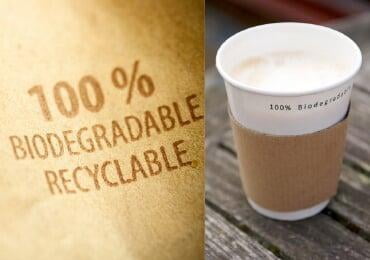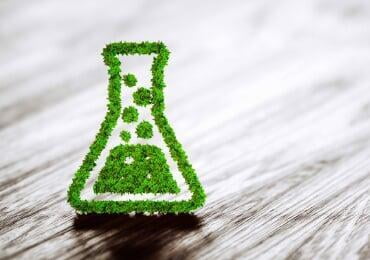
The picture shows Taro Iemoto, associate professor of science and technology at Oita University, Japan, and the fiber material extracted from bamboo. taken at Oita University on Nov. 24, 2021.
Oita University is conducting joint research with the Japan Aerospace Exploration Agency (JAXA) to use...

As packaging manufacturers around the world rapidly abandon the use of virgin plastics, the demand for fiber-based solutions is booming. However, industry associations, producers and consumers can seriously overlook an environmental hazard in paper and pulp use - moisture loss.
The pulp a...

Plastic waste brought about by the "white pollution", has made the earth suffer, people's awareness of the harm caused by plastic products gradually increased, many large enterprises, companies have also acted to seek more plastic alternatives. Paper straws were one of the bold attemp...

Although recycling and reuse have always been strongly advocated, in reality there are many simple and low-power small electronic devices that are often disposable. Because of this, "disposable batteries" are also one of the areas of interest for scientists.
Recently, scientists at th...

Petroleum-derived plastics (traditional petroleum-based plastics) are lightweight, strong, durable, and resistant to degradation, replacing many other substances in the form of disposable gears, packaging, furniture, machinery frames, accessories, etc. They are widely used in medical and industrial ...

Bio-based Materials (BBMs) are a new class of materials made from renewable biomass or (and) biologically manufactured raw materials through biological, chemical and physical means, such as bioplastics and biomass functional polymers.
Bio-based materials are different from traditional chemical ...

What are green composites?
Green composites in a narrow sense are composites in which at least one of the component materials is obtained from natural resources and is completely degradable. Also known as biocomposites or ecocomposites.
Green composites in a broad sense, from the requireme...

Plastic can be seen everywhere in life, whether from milk tea drink cups and straws, or breakfast in the morning to give you a plastic bag, whether it is the outer packaging of cosmetics or some plastic film, in a sense, it does make us feel convenient, but people's uncontrolled use, coupled with th...

There are more than 5 billion plastic particles floating on the surface of our oceans, causing significant damage to organisms, fragile underwater ecosystems and even the climate. Until now, it has only been possible to determine how long it takes for plastics to completely degrade by extrapola...

One of the major environmental issues facing the planet today is the rising level of plastic consumption and waste. According to a recent OECD study, 460 million tons of plastic were produced globally in 2019, and consumption will continue to grow despite the expected increase in the deployment of r...